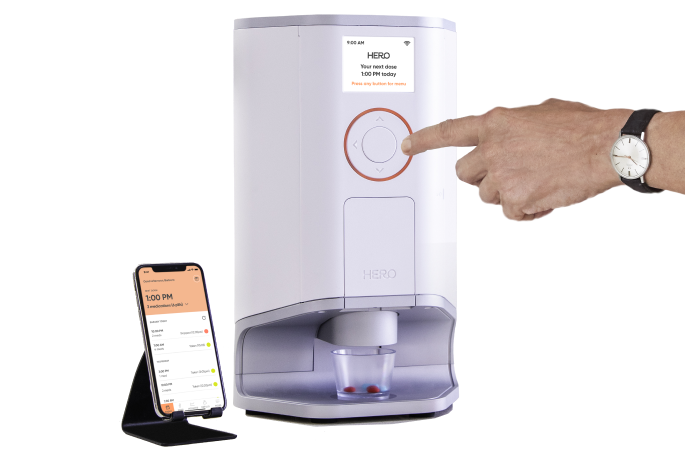Are caregiver expenses tax deductible? How to claim caregiver medical expenses

Paying for Mom’s or Dad’s prescriptions, doctor’s appointments, or medical monitoring devices can get expensive. You may have had to make home modifications or offer financial assistance to help your older loved ones support themselves.
These expenses can add up; in fact, American families spend almost 26% of their annual income on caregiving, including 17% on medical costs. Fortunately, there are tax breaks available for caregivers that may offer some financial relief.
In this article, we’ll cover:
- Are caregiver expenses tax deductible?
- Are caregiver expenses considered medical expenses?
- What caregiver medical expenses are tax-deductible?
- What other types of tax relief are available for caregiver expenses?
- How can I claim caregiver expenses?
Are caregiver expenses tax deductible?
Yes, costs related to taking care of an elderly parent, relative, or even a qualified friend are eligible for tax deductions.
To claim caregiver expenses, you must first add your loved one as a dependent on your tax forms. Your loved one may be eligible to be your dependent based on your relationship, their legal residency status, income level, and the percentage of your income spent on medical expenses. For example, your loved one must have legal residence in the United States with a valid ID, and cannot earn more than $4,300 in gross income for the tax year. If your loved one lives with you and you pay for more than 50% of their living expenses, they can also qualify as your dependent.2
This IRS interactive tax assistant can help you understand if your loved one qualifies as a dependent.
Are caregiver expenses considered medical expenses?
If you incurred medical expenses for a loved one that were not reimbursed by insurance, you may file for a tax deduction. Keep in mind that these medical expenses must cost more than 7.5% of your adjusted gross income that year to reap any tax breaks.3
For example, if your adjusted gross income this year is $100,000, then the first $7,500 of your expenses are not tax-deductible. If you incurred $25,000 of medical expenses for the same year (including caregiver expenses), however, you could deduct $17,500 ($25,000-$7,500) from your taxes that year.
What caregiver medical expenses are tax-deductible?
Under Internal Revenue Code 213(d)(1), "medical care includes amounts paid for the diagnosis, cure, mitigation, treatment, or prevention of disease, or for the purpose of affecting any structure or function of the body." Medical expenses that qualify for tax deductions include:
- Reasonable home modifications, like a ramp to accommodate wheelchairs or support bars for someone with disabilities Car modifications to accommodate your dependent’s needs
- A personal attendant for people unable to perform activities of daily living (ADL)
- Travel to doctor’s appointments and therapy
- Assisted living costs
- Prescriptions and necessary medical equipment
- Diagnostic tests4
Here’s a comprehensive list of acceptable deductions.
Complex med schedule? We solved it.
Hero’s smart dispenser reminds you to take your meds and dispenses the right dose, at the right time.

What other types of tax relief are available for caregiver expenses?
Flexible spending and health savings accounts
You can allocate pre-tax dollars to pay out-of-pocket caregiver healthcare costs using a flexible spending account (FSA) or health savings account (HSA).
For instance, you can use an FSA or HSA card to pay for Hero, a medication management service that can help your loved ones take their medications as prescribed. Using their smart dispenser and remote monitoring app, your loved one can dispense their meds at the push of a button, while you get timely alerts if they miss a dose. A Hero subscription also offers automatic refills with free delivery, so you can avoid those countless trips to the pharmacy and give yourself one less thing to worry about.
Head-of-household status
If you are unmarried but pay more than half the costs needed to maintain living expenses for a dependent, consider filing under ‘head of household’ instead of ‘single.’ People who are married but live apart from their spouse may also qualify for this status.2
How can I claim caregiver expenses?
Ready to claim your expenses? Save the list of resources below:
- Verify if your loved one is eligible as a qualifying relative.
- Itemize your expenses on IRS Schedule A when filing your taxes (do not take the standard deduction).
- Consider consulting with a tax professional to advise you on what medical expenses are covered.Or, utilize the IRS Volunteer Tax Income Tax Assistance Program and Tax Counseling for the Elderly. If your dependent is a veteran, explore veteran health benefits. Track your expenses and save receipts to save time and effort down the road!
Sources
1. Skufca, Laura, and Chuck Rainville. Caregiving Out-of-Pocket Costs Study 2021. Washington, DC: AARP Research, June 2021. https://doi.org/10.26419/res.00473.001
2. Publication 501 (2021), dependents, standard deduction, and filing information. (n.d.). Irs.Gov. Retrieved April 26, 2022, from https://www.irs.gov/publications/p501
3. Topic no. 502 Medical and dental expenses. (n.d.). Irs.Gov. Retrieved April 26, 2022, from https://www.irs.gov/taxtopics/tc502
The contents of the above article are for informational and educational purposes only. The article is not intended to be a substitute for professional medical advice, diagnosis, or treatment. Always seek the advice of your physician or other qualified clinician with any questions you may have regarding a medical condition or its treatment and do not disregard professional medical advice or delay seeking it because of information published by us. Hero is indicated for medication dispensing for general use and not for patients with any specific disease or condition. Any reference to specific conditions are for informational purposes only and are not indications for use of the device.



